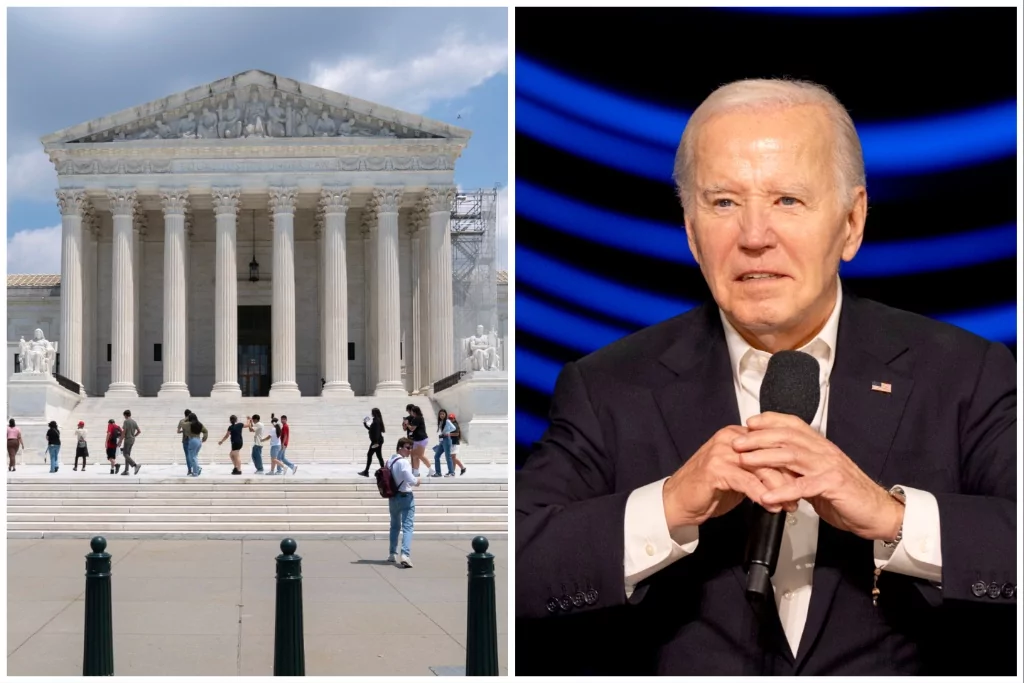

The Supreme Court‘s recent decision striking down a Trump-era bump stock ban could have an impact on President Joe Biden‘s recently imposed limits on asylum claims.
The ruling held that the Bureau of Alcohol, Tobacco, Firearms, and Explosives erred in classifying bump stocks as machine guns, effectively banning them, and that it would take an act of Congress to implement a ban on bump stocks. If the court holds in line with the majority ruling it made in the bump stock ban case, Biden’s recent executive action restricting asylum-seekers would also be struck down, according to former Obama-appointed U.S. Attorney Joyce Vance.
Vance discussed Justice Samuel Alito’s concurrence in last week’s Garland v. Cargill decision, in which he argued that “the statutory text is clear, and we must follow it.”
“The horrible shooting spree in Las Vegas in 2017 did not change the statutory text or its meaning. That event demonstrated that a semiautomatic rifle with a bump stock can have the same lethal effect as a machine gun, and it thus strengthened the case for amending §5845(b),” Alito wrote. “But an event that highlights the need to amend a law does not itself change the law’s meaning.”
Joyce contended on the CAFE Insider podcast that Alito would have to uphold the constitutional logic that he used in the bump stock case with an immigration executive order carried out by Biden.
“You have to wonder, what will Justice Alito do? You know Justice Alito, who just said a tragedy like Las Vegas can’t change the language in the law, right? We are bound by the language and the statutes even in the face of emergency or tragedy,” Vance said. “Well, now you got a statute that clearly talks about when people can claim asylum.”
CLICK HERE TO READ MORE FROM THE WASHINGTON EXAMINER
Biden’s executive order announced earlier this month bars most asylum-seekers entering through the southern border if the number of apprehensions at ports of entry by Border Patrol exceeds 2,500 arrests per day and that it would only be eased if it drops to 1,500 apprehensions daily for at least two consecutive weeks. The action is similar to what was included in a scrapped bipartisan border bill that the Senate considered earlier this year, which Biden was in favor of.
The order is likely to face legal challenges, with the American Civil Liberties Union threatening action against the order shortly after it was announced.






